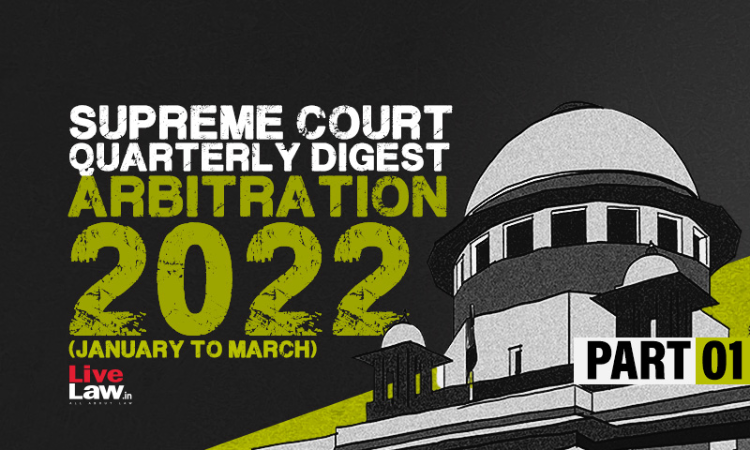Supreme Court Quarterly Digest 2022- ARBITRATION (Jan - Mar)
LIVELAW NEWS NETWORK
24 May 2022 10:37 AM IST

Next Story
24 May 2022 10:37 AM IST
Arbitration Act, 1940; Section 30, 33 - Scope of interference by courts - A Court does not sit in appeal over an Award passed by an Arbitrator and the only grounds on which it can be challenged are those that have been specified in Sections 30 and 33 of the Arbitration Act, namely, when there is an error on the face of the Award or when the learned Arbitrator has misconducted himself or...
